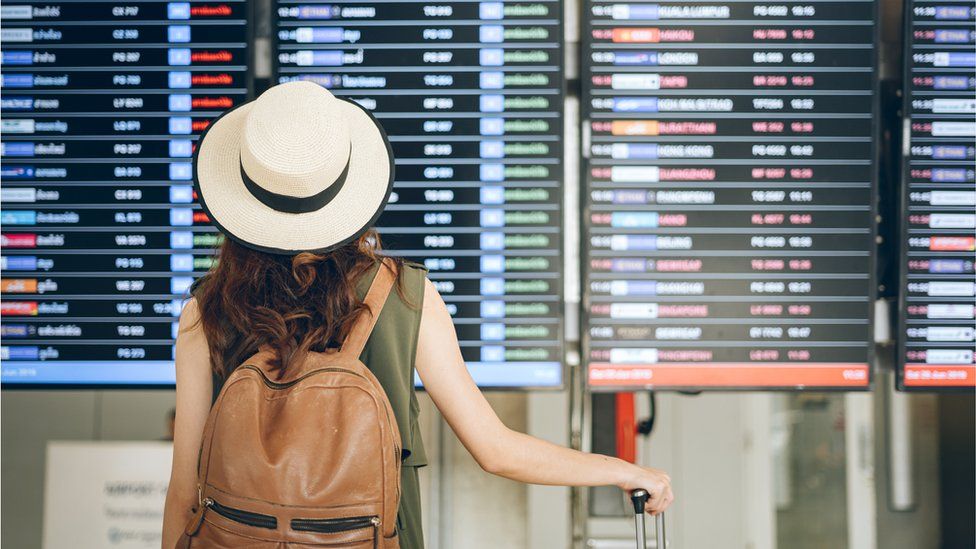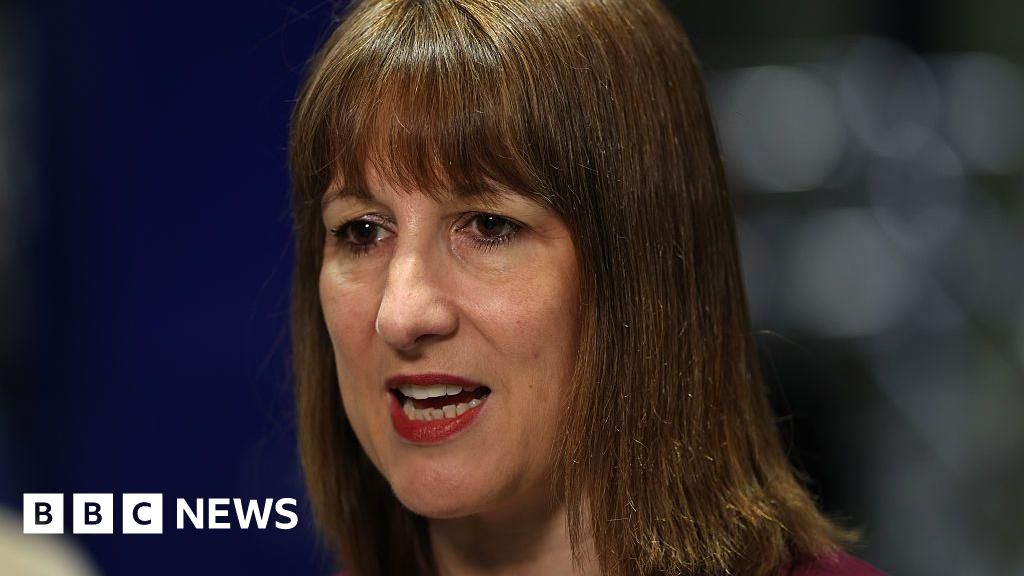ARTICLE AD BOX
 Image source, Getty Images
Image source, Getty Images
By Katy Austin
Transport correspondent
Many people will be heading on long-awaited holidays in the next few weeks.
Last year's summer season was marked by widespread travel disruption.
So whether you're travelling by plane, train, road or ferry, will things be smoother this time round?
Planes
This summer is set to be the busiest time for aviation since before the pandemic.
Some 92,404 flights are scheduled to depart the UK this July, according to aviation data firm Cirium - the most since October 2019.
Last summer, demand for travel roared back after Covid travel restrictions were eased. But many airports and airlines that had made cuts during the pandemic struggled to recruit staff quickly enough.
They insist they've pulled out all the stops to make their operations more resilient this year.
For example, EasyJet told the BBC in March it started recruiting far earlier than usual and was already fully staffed for summer.
However, there are different headaches this year, which could mean further disruption, although not necessarily on the scale of last year's problems.
Strike action, notably by French air traffic controllers, has been causing cancellations and delays for months.
Flights over France to destinations such as Spain and Portugal have also been affected, which Ryanair's boss has repeatedly complained about.
The Unite union says ground handlers contracted by airlines at Gatwick Airport will take eight days of strike action in late July and early August. Gatwick is Europe's busiest single-runway airport.
This could mean disruption, although the airport says it will work with airlines to ensure as many flights as possible operate as scheduled.
Image source, PA Media
Image caption,Many airports struggled to cope last summer
Meanwhile, at Birmingham Airport, around 100 security officers and terminal technicians will begin continuous strike action from 18 July.
But proposed summer strike action by security workers at Heathrow was called off after the Unite union accepted an improved pay offer.
The threat of strikes by European air traffic managers at Eurocontrol remains, but no dates have been set. The union involved told the BBC it hopes to reach an agreement with the employer.
Industrial action isn't the only issue.
The air traffic control environment is "challenging", according to Willie Walsh, who heads up global airline body Iata.
EasyJet has already axed 1,700 summer flights at Gatwick to reduce the chance of last-minute cancellations, blaming what it called "unprecedented" air traffic limitations.
Europe's air space remains constrained and clogged up due to the Ukraine war.
"In the event of French strikes some flights may be rerouted through other, already congested, air space which itself creates additional pressure," says aviation expert John Strickland.
"Manpower shortages in parts of Europe such as Greece and Denmark [are] causing capacity bottlenecks, which create further delays.
"Indeed one European airline CEO told me that the whole of European air traffic control except the UK was 'a mess'."
Mr Strickland thinks events like summer storms could add pressure to an already stretched system, leading to delays and cancellations.
Trains
Image source, Getty Images
On the railway, the plans of thousands of people going on day trips or holidays could be affected.
Another period of disruption will begin on Monday as train drivers in the Aslef union will refuse to work overtime at 15 train companies between 17 and 22 July.
This isn't a full strike but could cause some reduced timetables and last-minute cancellations.
Then, rail workers in the RMT union at 14 train companies with government contracts are due to walk out on 20, 22 and 29 July.
Their dispute over pay, jobs and working conditions has been going on for more than a year now.
The operators are all based in England but some run services into Wales and Scotland.
The level of disruption during these strikes will vary around the country. Many will run reduced services.
Strike day timetables will be published a week before each date.
These RMT strikes are happening after the union rejected the latest proposals from the industry, which is backed by the government.
The train companies are under pressure from the government to cut costs. With the national dispute at a standstill, they have since announced controversial plans to close most station ticket offices in England.
Passengers are being asked to provide their views until 26 July, in a consultation run by watchdogs Transport Focus and London Travelwatch.
In London, the Underground will be affected by significant disruption between 23 and 28 July, with the RMT, Aslef and Unite scheduling strike action that week.
Roads
Traffic is expected to increase as we head into the summer holiday season, and roads could be busier than usual as train strikes push people into cars instead.
"It's likely that people will consider altering their journey plans and they may well travel by car instead so it's important they check their vehicle is roadworthy before setting off," says Frank Bird, senior network planner at National Highways.
"We'd also remind motorists to check the weather forecast... and to take plenty of drinking water with them as well as food that won't be affected by the heat in case of delays."
Ferries
Image source, PA Media
Image caption,There were long queues at Dover during the Easter holidays
Dover is Europe's busiest ferry port, and summer is its peak time as passengers head across the Channel.
It will be under the spotlight again after many passengers experienced long queues last July and during this year's Easter holidays.
In late May, port boss Doug Bannister told the BBC everything possible had been done to prevent the same level of delays.
However, he said "it would be foolish" to guarantee there would never be queues.
Mr Bannister added that additional passport checks introduced after Brexit were a factor.
The port's location between cliffs and the sea means space is limited.
It says measures in place ahead of the summer holidays include working with coach and ferry operators to spread out travel at peak times, extra space to process coach passengers, and putting in more border control posts.
Local authorities and emergency services have traffic management plans for busy times, including queuing up lorries on the M20 motorway.
This system was reinstated on Thursday, ahead of the busy July and August period.

 1 year ago
91
1 year ago
91








 English (US) ·
English (US) ·